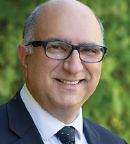Chimeric antigen receptor (CAR) T-cell therapy is a revolutionary approach to treating hematologic malignancies. As experience with this strategy is gained, researchers are learning more about how to optimize responses, especially in patients with “immune exhaustion,” who have a suboptimal initial response or a response that wanes over time.
One approach to recharging the immune system is to augment therapy using a checkpoint inhibitor. At the 2018 American Society of Hematology (ASH) Annual Meeting & Exposition, two separate presentations focused on early small studies using the checkpoint inhibitor pembrolizumab (Keytruda) in patients who appear to be losing their response to CAR T cells—one study in patients with relapsed or refractory B-cell non-Hodgkin lymphoma (NHL)1 and the other in pediatric patients with relapsed B-cell acute lymphoblastic leukemia (ALL).2 Results are promising thus far, but larger trials are needed.
Relapsed B-Cell NHL
A single-center study enrolled 12 patients with progressive or relapsed B-cell NHL who had previously received CD19-targeted CAR T-cell therapy and treated them with fixed-dose pembrolizumab at 200 mg given intravenously every 3 weeks until disease progression or toxicity. These patients did not receive any other therapy between the time of CAR T-cell infusion and pembrolizumab. The goal of the study was to evaluate the safety of pembrolizumab after CAR T-cell infusion and determine the optimal timing of pembrolizumab.

Elise A. Chong, MD
“About 60% to 70% of patients with large B-cell lymphoma don’t have a durable response to CD19-directed CAR T-cell therapy. The evidence suggests that immune exhaustion may contribute to progressive disease or relapse [on CAR T cells], since two-thirds of patients at disease progression have programmed cell death ligand 1 (PD-L1) expression on biopsies. The idea is to restart the immune system using a checkpoint inhibitor. We don’t know the best time to administer checkpoint inhibition relative to CAR T cells, and several multicenter trials are studying this,” said lead author Elise A. Chong, MD, a fellow in hematology-oncology at the Abramson Cancer Center, University of Pennsylvania, Philadelphia.
A total of 11 patients had diffuse large B-cell lymphoma, and 1 had follicular lymphoma. Of these 12 patients, 9 had progressive disease at a median of 3.3 months before they received pembrolizumab. The other 3 patients had relapses more than 1 year after CAR T-cell infusion and then were treated with pembrolizumab.
The combination appeared to be safe, and it was also effective in “jump-starting” the immune system, based on reexpansion of CAR T-cell populations in 8 of 11 patients after receiving pembrolizumab. Adverse events considered possibly related to pembrolizumab included grade 3 or 4 neutropenia (3 patients), 2 cases of grade 1 and 3 cytokine-release syndrome, 1 grade 2 infusion-related reaction, 3 cases of grade 1 or 2 fever, 1 case of grade 1 fatigue, 1 grade 1 transaminitis, 1 grade 1 diarrhea, 1 grade 1 nausea, 1 grade 1 pleural effusion, and 1 case of grade 1 arthralgia. One patient developed cytomegalovirus infection considered unrelated to treatment.
In all, 12 patients were evaluable for response. The best overall response rate was 25% (1 complete response, 2 partial responses); 1 patient had stable disease, and 8 had progressive disease.
Noteworthy Findings
“We saw reexpansion of CAR T cells in patients who had progressive disease within the first 3 months compared to patients who relapsed later and who generally had low levels of CAR T cells at the time of pembrolizumab treatment,” Dr. Chong explained.
‘JUMP-STARTING’ THE IMMUNE RESPONSE
- Study findings suggest that adding a checkpoint inhibitor to CAR T-cell therapy can augment the immune response when the immunotherapy is no longer working.
- More study is needed, but initial results have been positive.
“The optimal timing of pembrolizumab is a big question, and it appears that 1 year out is not optimal for most patients. Our study suggests that within 3 months is a better time frame, and we may be able to start pembrolizumab much sooner or even before CAR T-cell therapy. We treated some patients as early as 13 days after CAR T-cell infusion without toxicity,” she continued. “We need to determine the optimal window of time to give pembrolizumab and balance that with toxicity.”
Another interesting finding was that the magnitude of CAR T-cell expansion after pembrolizumab did not correlate with clinical outcome.
At least three multicenter trials are active or opening to explore the optimal timing of checkpoint inhibitor therapy in patients with lymphoma who have disease progression or relapse on CAR T-cell therapy in the third-line setting (ClinicalTrials.gov identifiers NCT02026833, NCT03310619, and NCT03630159). These trials include tisagenlecleucel (Kymriah) and pembrolizumab, axicabtagene ciloleucel (Yescarta) and atezolizumab (Tecentriq), and JCAR017 and durvalumab (Imfinzi). In addition to the different checkpoint inhibitors combined with CAR T cells, they involve different intervals between CAR T-cell and checkpoint inhibitor administration, Dr. Chong said. The design is to initiate checkpoint inhibition as closely after CAR T-cell infusion as is safely tolerated.
Relapsed or Refractory B-Cell ALL
A single-center study at the Children’s Hospital of Philadelphia describes use of programmed cell death protein 1 (PD-1) inhibitors in pediatric patients with relapsed or refractory B-cell ALL treated with CD19-directed CAR T-cell therapy (using murine or humanized CAR T cells). The study enrolled 14 patients, aged 4 to 17 years, with heavily pretreated, relapsed B-cell ALL (n = 13) and B lymphoblastic lymphoma (n = 1) treated with CD19-directed CAR T cells.
Patients received a PD-1 inhibitor (pembrolizumab in 13; nivolumab [Opdivo] in 1) starting no sooner than 14 days after CAR T-cell infusion and after resolution of cytokine-release syndrome. The timing of checkpoint inhibitor therapy was based on the trend that levels of CAR T cells often decline starting 14 days after infusion and because cytokine-release syndrome generally occurs during the first 14 days. Patients were followed for a median of 13.3 months after being given checkpoint inhibitor therapy. Half the patients maintained either a partial or complete response.

We showed that the combination is safe and that a PD-1 checkpoint inhibitor may be used to improve CAR T-cell persistence.— Shannon L. Maude, MD
Tweet this quote
“We showed that the combination is safe and that a PD-1 checkpoint inhibitor may be used to improve CAR T-cell persistence. At least half of the patients exhibited a response with the checkpoint inhibitor, with durable responses seen more than 18 months later in some patients. The data suggest that it might be of benefit to patients with early B-cell recovery and bulky extramedullary disease,” stated senior author Shannon L. Maude, MD, of the Children’s Hospital of Philadelphia. Dr. Maude discussed this abstract at a press conference during the ASH meeting. The presenting author was Amanda Li, MD, of British Columbia Children’s Hospital, Vancouver.
Study Details
Three groups of patients were treated with pembrolizumab. In those with partial or no response to CAR T-cell infusion, 4 of 4 patients had disease progression on pembrolizumab, 1 with reduced CD19 expression. In six patients with poor persistence of CAR T-cell therapy, the use of pembrolizumab led to the return of B-cell aplasia (a signal of CAR T-cell function) and sustained complete response. In four patients with bulky extramedullary disease, two had sustained complete responses and two had partial responses.
No unexpected or fatal toxicities were reported. Within 2 days of initiating pembrolizumab, cytokine-release syndrome symptoms and fever were observed in 3 of 14 patients; 4 patients had grade 3 or 4 cytopenia. No grade 5 toxicities or graft-vs-host disease flares were observed. Two patients who discontinued pembrolizu-mab due to delayed adverse effects on multiple doses had a relapse or progression of C19-positive disease within a few weeks of -discontinuation.
Dr. Maude and her team will continue to follow these patients and explore combination strategies to improve outcomes with CAR T-cell therapy. ■
DISCLOSURE: This study was partially supported by a grant from the V Foundation. Dr. Chong is an advisor for Novartis. Dr. Maude is a consultant for Novartis.
REFERENCES
1. Chong EA, et al: Sequential anti-CD19 directed chimeric antigen receptor modified T-cell therapy (CAR-T19) and PD-1 blockade with pembrolizumab in patients with relapsed or refractory B-cell non-Hodgkin lymphoma. 2018 ASH Annual Meeting & Exposition. Abstract 4198. Presented December 3, 2018.
2. Li AM, et al: Checkpoint inhibitors augment CD19-directed chimeric antigen receptor (CAR) T cell therapy in relapsed B-cell acute lymphoblastic leukemia. 2018 ASH Annual Meeting & Exposition. Abstract 556. Presented December 3, 2018.


